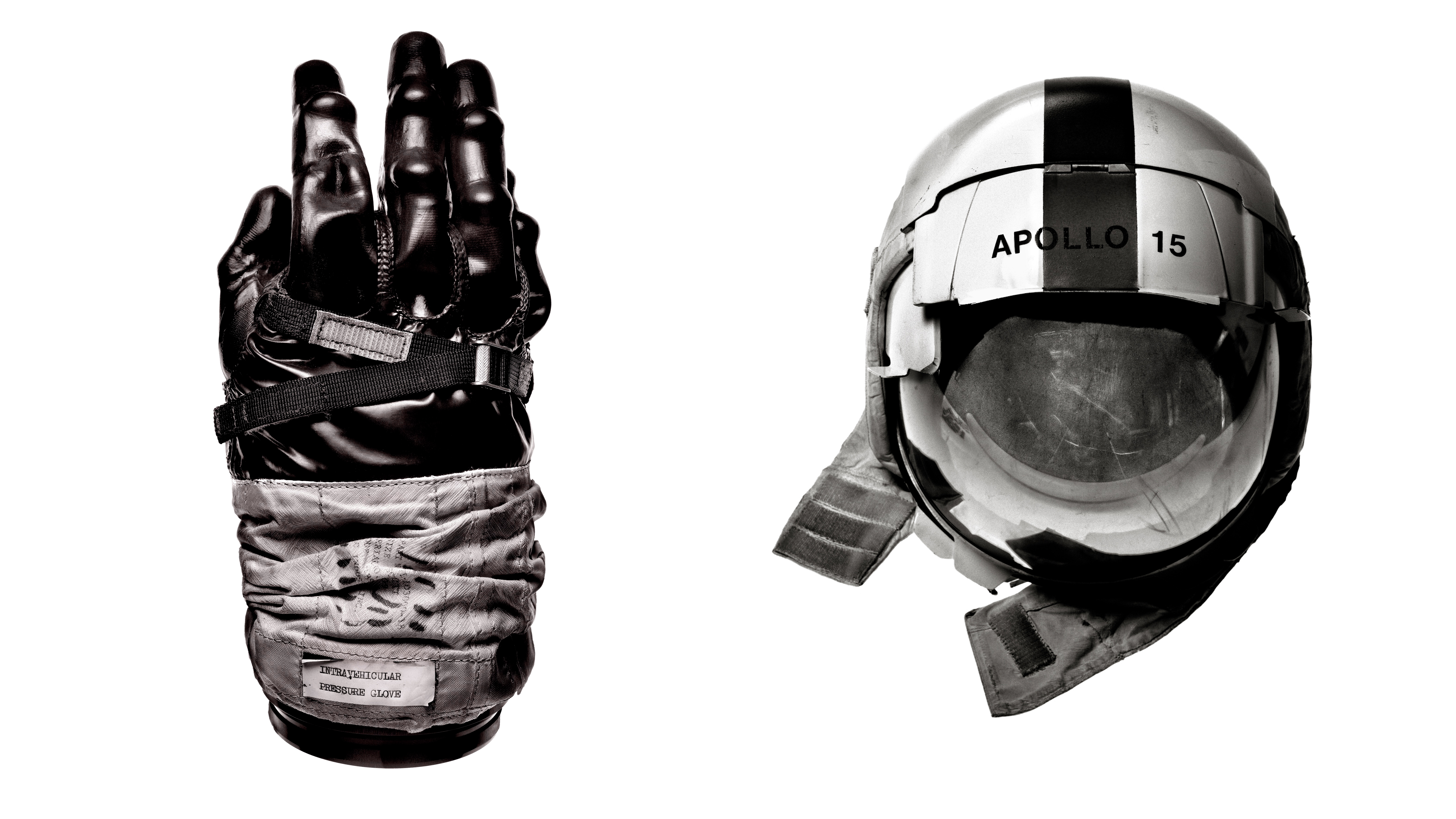Xiaomi announces slender Mix Fold 3 foldable with Leica quad-camera system
We try Xiaomi's lithe Leica-powered foldable with no less than four cameras and a Galaxy Z Fold 5-beating cover screen
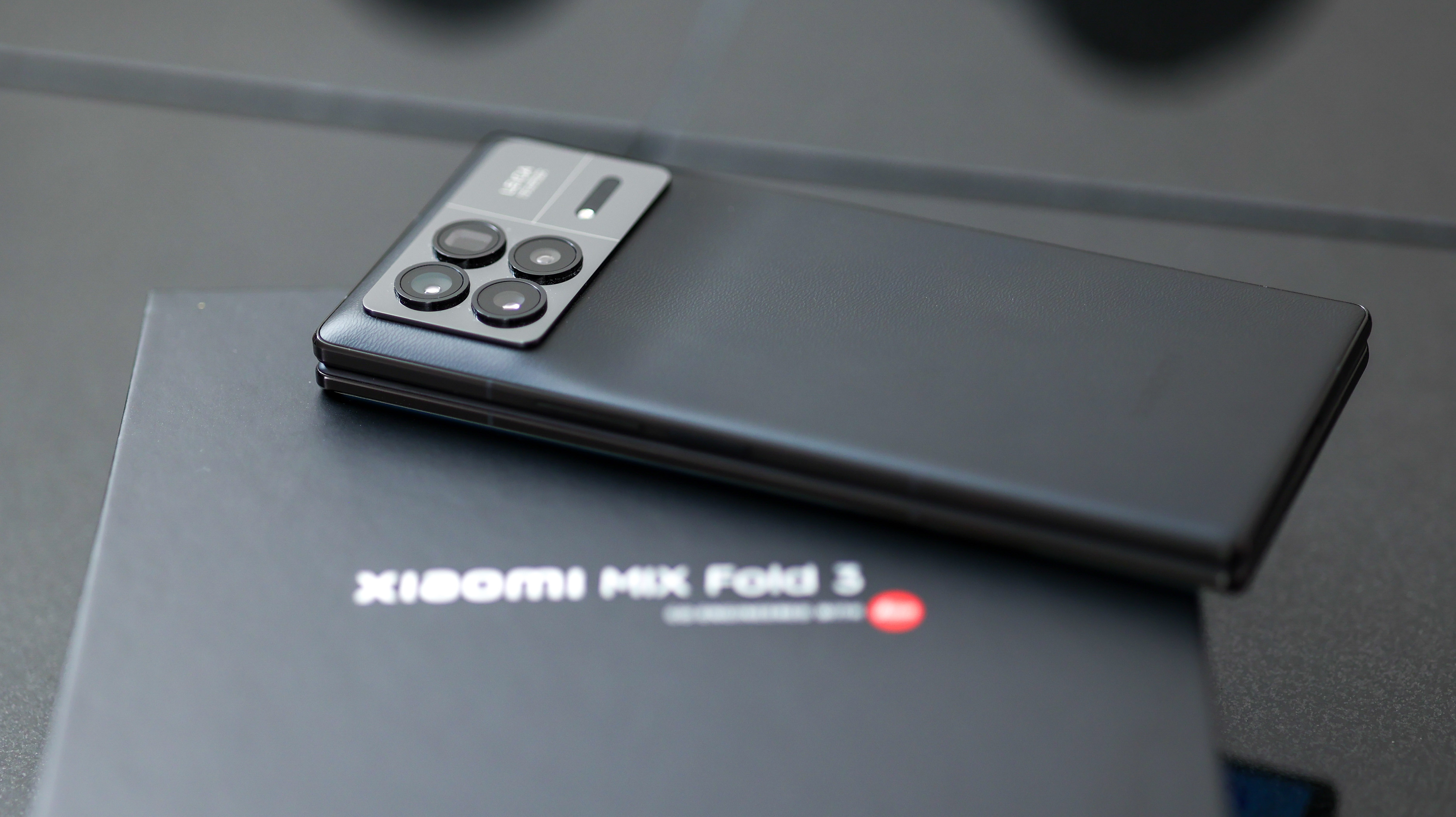
Xiaomi has lifted the lid on its latest foldable in China, the Xiaomi Mix Fold 3, and like all the firm's top-tier phones, it sports a specced-out, Leica-tuned camera system. Unlike the Samsung Galaxy Z Fold 5 and the Google Pixel Fold, the Mix Fold 3 has a virtually full-sized front screen – no narrower or shorter than a traditional smartphone.
On paper, it looks like a leveled-up Honor Magic Vs in many ways with its comfortable screens and similar main camera hardware – but it's a lot thinner – more on that later.
Starting with the cameras, the Mix Fold 3 has the same Sony IMX800 sensor as the Magic Vs and Honor 70 at the helm of the shooting experience. On both phones, the sensor was a strong performer but the cameras missed out on optical image stabilization (OIS).
For the Fold 3, Xiaomi adds OIS to the mix, creating a stabilized 50MP, 1/1.49-inch sensor, with a 23mm focal length and an f/1.77 aperture combo, plus a Leica Vario-Summicron lens atop a six-element array.
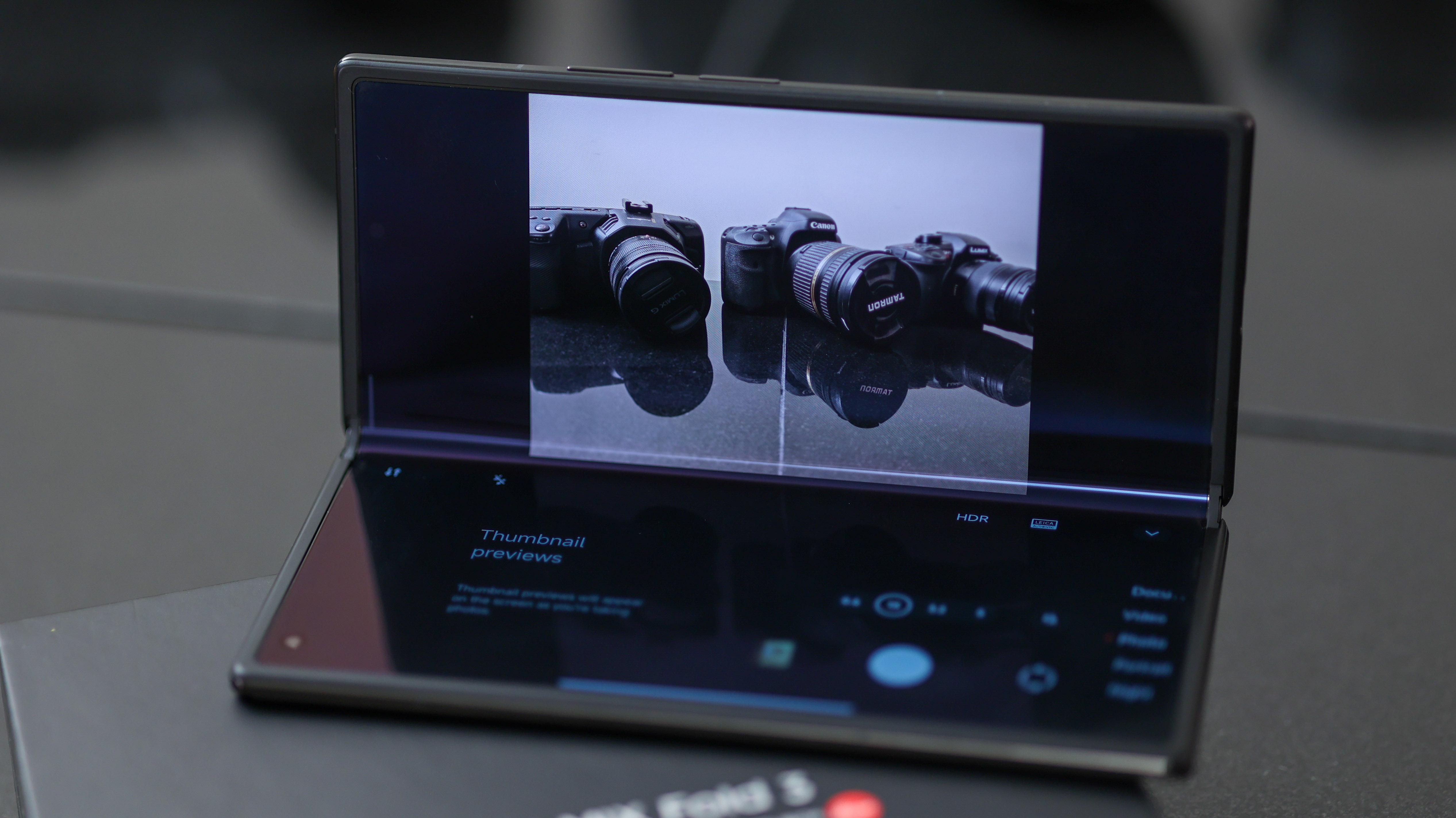
The Mix Fold 3's additional cameras include a 12MP ultra-wide camera with a 15mm equivalent focal length and an f/2.2 lens, a 10MP near-telephoto camera with a 75mm equivalent focal length, OIS and an f/2.0 aperture, and a 10MP, 115mm equivalent periscope camera with an f/2.92 lens.
These four cameras give the Mix Fold 3 significantly more range than most foldables, so while the phone doesn't sport the biggest sensors around – nothing like the incredible Xiaomi 13 Ultra – it still excels in the folding phone category.
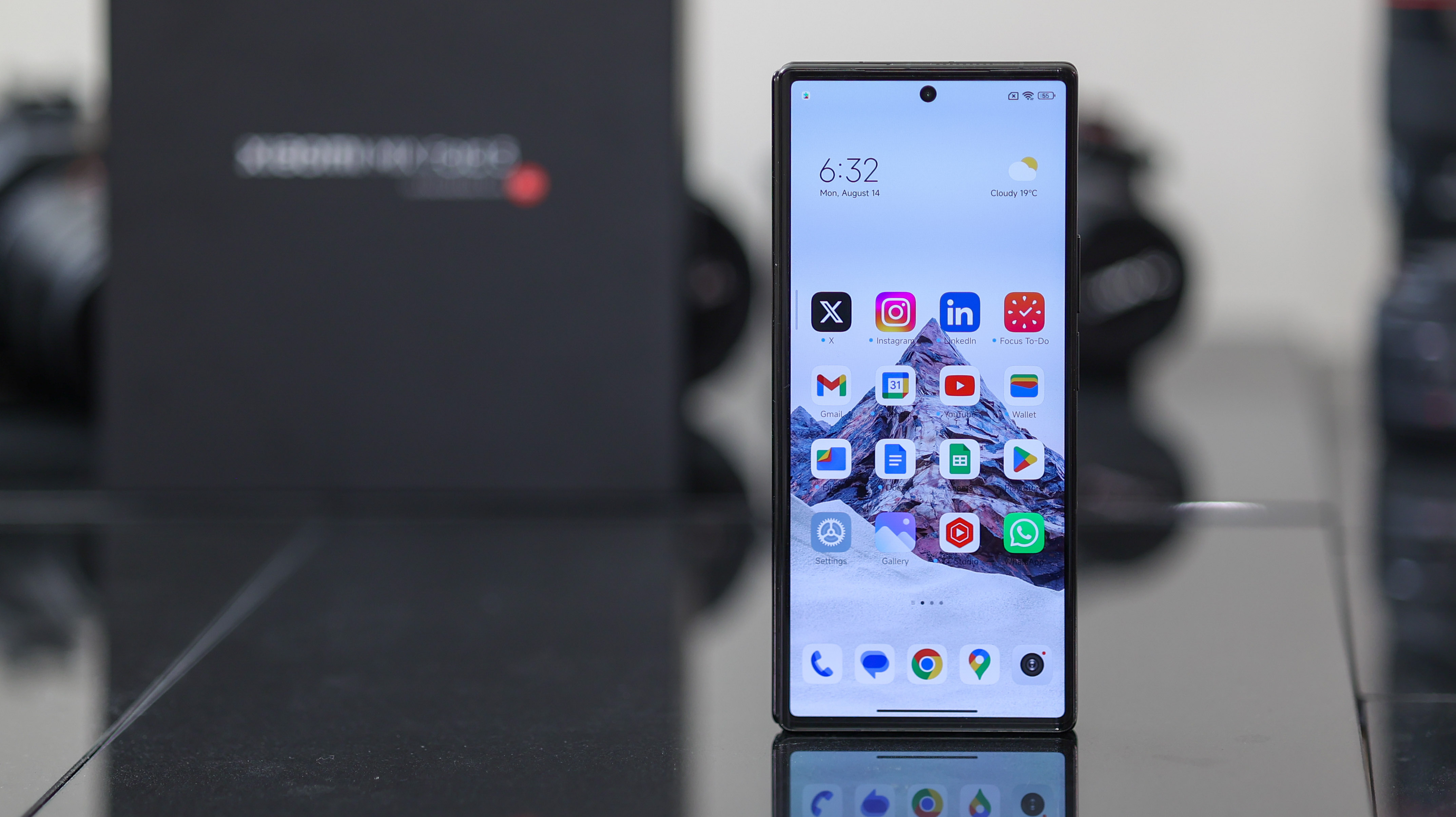
Other Xiaomi Mix Fold 3 highlights
Unsurprisingly, Xiaomi crammed flagship power into its new Mix Fold 3, with a Qualcomm Snapdragon 8 Gen 2 Leading Version. This chip is virtually identical to the one in the Z Fold 5 and Galaxy S23 Ultra, and matched with a hefty 16GB LPDDR5X RAM and either 256GB, 512GB, or 1TB of UFS 4.0 storage, it's proven to be a serious workhorse in our time with it.
Get the Digital Camera World Newsletter
The best camera deals, reviews, product advice, and unmissable photography news, direct to your inbox!
The screens are also excellent on paper and in the flesh – super comfortable to use – with the front display clocking in at 6.45 inches, and loaded up with HDR10+ and Dolby Vision support, as well as a 120Hz refresh rate and a sky-high peak brightness.
The inner screen is an 8-inch foldable panel – also packing those Dolby and HDR credentials, and the same silky 120Hz refresh rate.
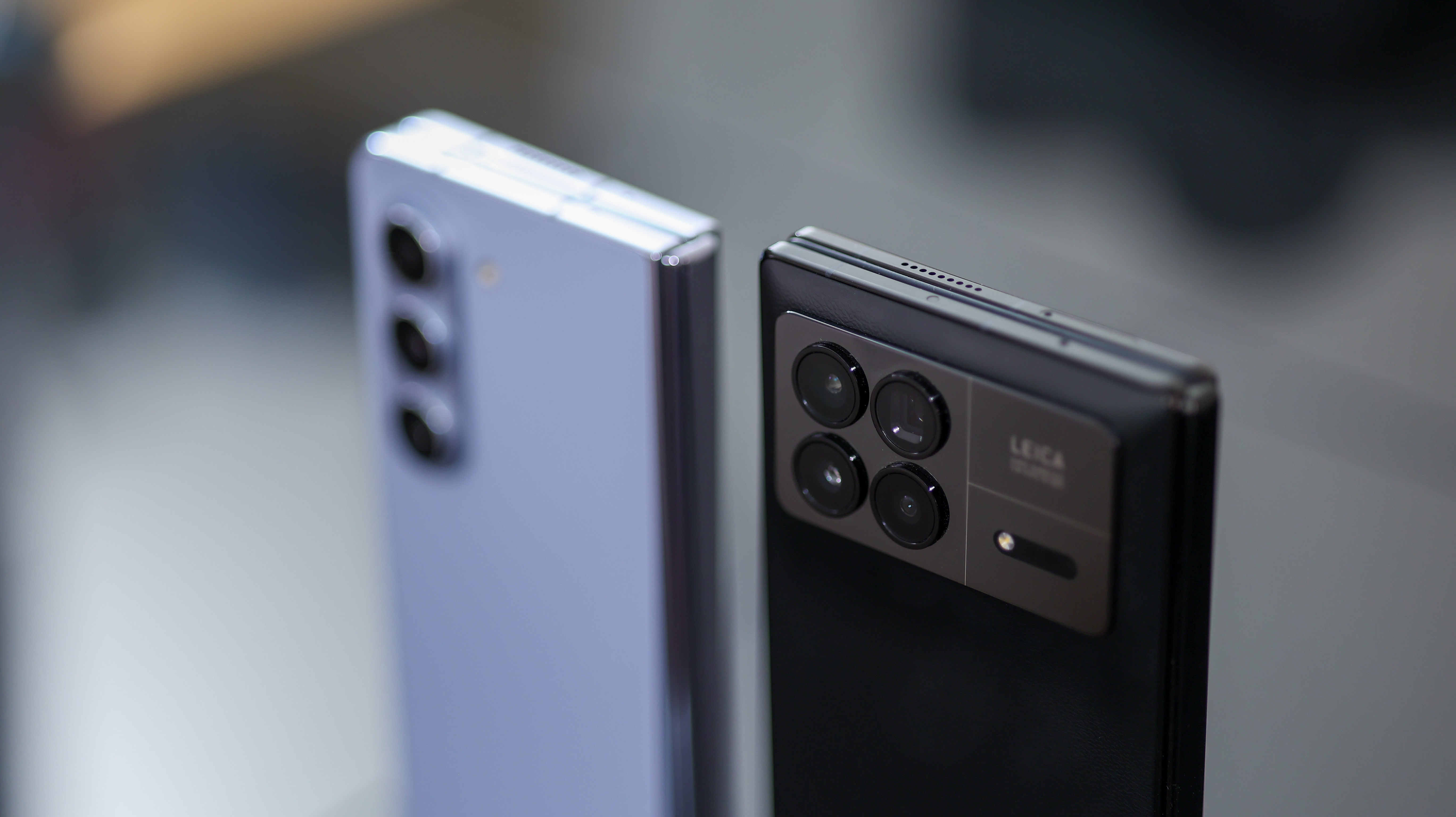
The Xiaomi Mix Fold 3 might not be the lightest folding phone around at 255g in its composite Fiber variant (259g in glass), but it is the thinnest, measuring just 5.26mm when unfolded, and 10.86mm when folded – an incredible feat of engineering.
Made possible by Xiaomi's proprietary hinge, the Mix Fold 3 has been tested to 500,000 folds, and can be held open throughout a range of angles. While it's definitely more springy than Google and Samsung's hinge, and the interface is less optimized for flex-form use, it's still impressive given how thin this phone is.
Add a 4800mAh battery to the spec roster as well as 67W fast charging and fast 50W wireless charging, and the Xiaomi Mix Fold 3 would be an impressive phone even if it didn't fold – but it does – making it an exciting step forward for foldables.
While we managed to get some time with the Mix Fold 3, it doesn't look like the phone will be launching in the West any time soon. That said, the main camera hardware is very similar to the Xiaomi 13, a great little handset also loaded up with an IMX 800 and OIS, or you can check out our review of the excellent Xiaomi 13 Pro for a Leica experience with a superior 1-inch main camera set-up.
If you're looking to pick up a flip phone that is available in the West, here's a guide to the best flip and fold phones out now.
Basil Kronfli is a freelance technology journalist, consultant, and content creator. He trained in graphic design and started his career at Canon Europe before moving into journalism. Basil is also experienced in video production, independently running the YouTube channel TechEdit, and during his time at Future, he worked alongside the Digital Camera World team as a senior video producer.

